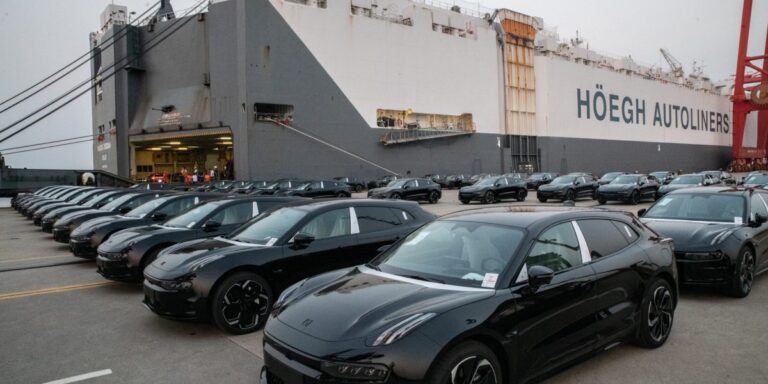
Eight months later announced for the first time It is anti-subsidy investigation, the European Union has finally taken its tariff measures. On Wednesday, the European Commission announced it would impose duties of up to 38.1% on electric vehicles made in China starting next month.
The response from Chinese state media was fierce. A commentary published in Xinhua, China’s state news agency, called the decision “misguided” and a “thinly veiled excuse for protectionism”. Another article published by Xinhua said the EU’s “best-laid plan for (an) economic boom” is to partner with China.
An opinion article in the World Time, an English-language public media outlet, claimed that Europe had “chosen to give in to protectionism”.
Chinese officials also their known discontent. Commerce Ministry officials said the EU tariffs were “contrary to the spirit of cooperation.”
Chinese electric vehicle makers generally did not publicly criticize the EU decision after the announcement. Chinese electric vehicle company Nio, after announcing tariffs, said he opposed the EU decision but remained committed to the European electric vehicle market. Other Chinese brands, such as BYD and Chery, have announced plans to build cars in Europe, which would not be subject to customs duties.
Previously, Chinese electric vehicle manufacturers like BYD pushed back countered claims that their success was due to state support, instead attributing fierce domestic competition and internal efficiency.
Stocks of major Chinese electric vehicle manufacturers and startups appear to be unaffected by the decision. BYD shares rose nearly 6% Thursday in Hong Kong; the Chinese electric vehicle giant is subject to a lower rate of EU customs duties than many of its Chinese peers. Nio shares rose 2%, while SAIC Motor, subject to the highest tariffs, fell 1.5%.
Only tariffs above 50% would make the European market unattractive for Chinese electric vehicle manufacturers, Rhodium design office stated in a report at the end of April.
Will China retaliate?
These prices are not unanimous in Europe. The German Automobile Industry Association said the potential harm caused may outweigh the potential benefits.
Major German car brands remain important players in the Chinese market and could potentially be exposed to retaliatory tariffs. China accounted for around a third of BMW, Volkswagen and Mercedes-Benz sales in the first quarter of 2024.
Other European products, such as luxury goods, wine and agricultural products, could also be threatened by Chinese retaliation. In January, Beijing launched an anti-dumping investigation into French brandy, months after the EU’s anti-subsidy investigation into electric vehicles, which analysts described as a possible “first shot” in a trade war between Europe and China.


